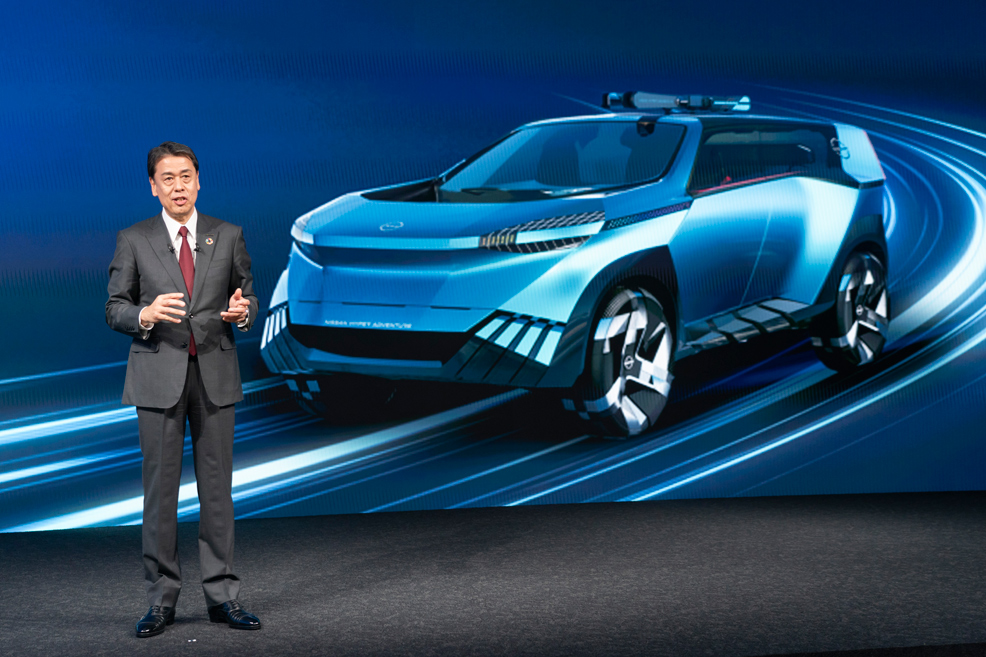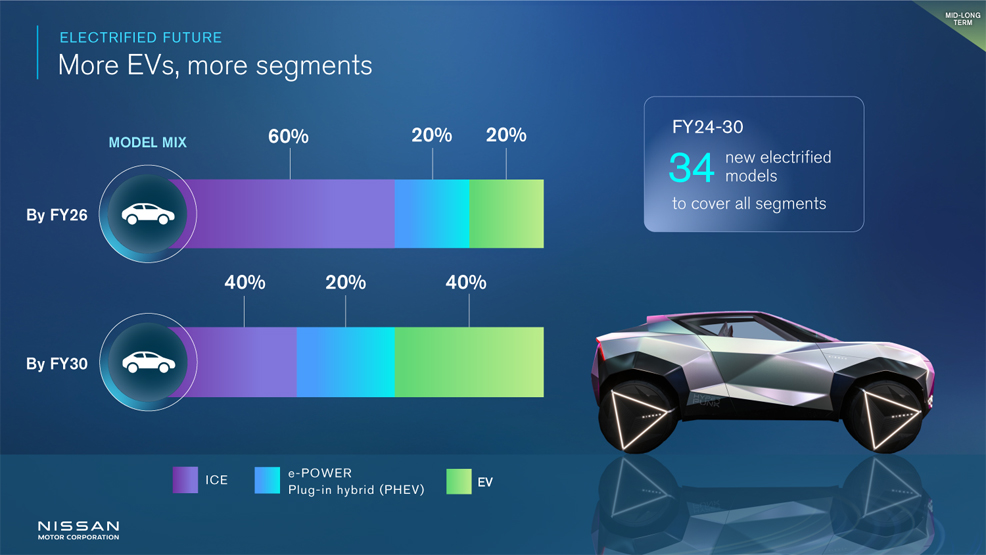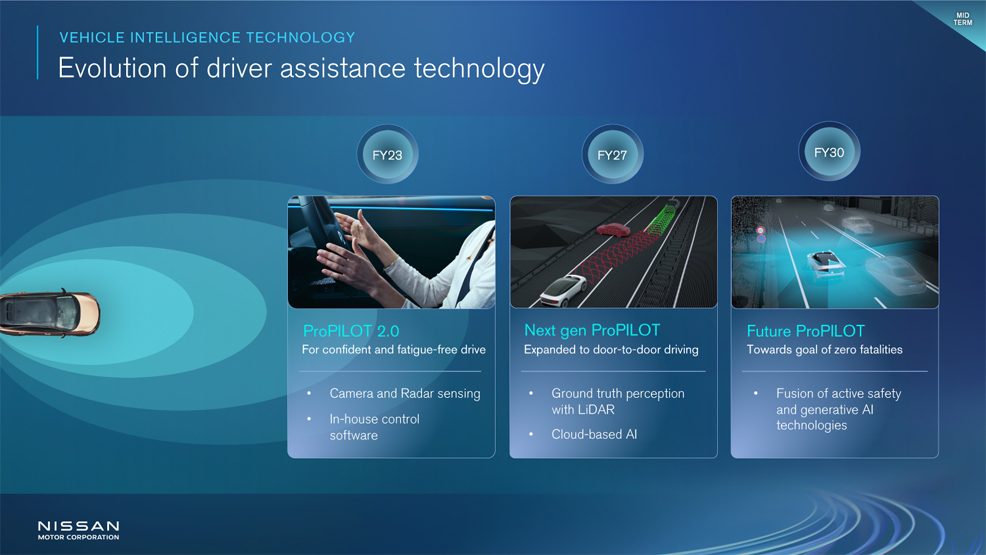
31st March 2024 Nissan plans 30% cheaper EVs by 2030 Japanese carmaker Nissan has announced plans to boost its electric vehicle lineup with an additional 34 models, and is aiming for price parity with internal combustion engine (ICE) vehicles by 2030.
This week, at a press conference in Atsugi, near Tokyo, Nissan revealed its medium to longer-term business roadmap. The plans, which cover the period from 2024 to 2030, include a dramatic expansion of vehicle electrification, a significant reduction in costs, and a number of technological innovations. Last year, traditional ICE vehicles accounted for 78% of Nissan's portfolio, with plug-in hybrid electric (PHEVs) and pure electric vehicles (EVs) accounting for just 13% and 9%, respectively. However, a major revamp of its product range will see ICE vehicles reduced to a 40% share, with PHEVs making up 20% and EVs increasing to 40% by 2030. Nissan's strategy is known as "The Arc" and is available to download as a PDF. The company describes it as "focused on a broad-based product offensive, increased electrification, new approaches to engineering and manufacturing, the adoption of new technologies, and the use of strategic partnerships to increase global unit sales and improve profitability." "The Arc plan shows our path to the future," said Makoto Uchida, Nissan President and CEO. "It illustrates our continuous progression and ability to navigate changing market conditions. This plan will enable us to go further and faster in driving value and competitiveness. Faced with extreme market volatility, Nissan is taking decisive actions guided by the new plan to ensure sustainable growth and profitability."
By developing EVs in families, integrating powertrains, utilising next-generation modular manufacturing, group sourcing, and battery innovations, Nissan aims to reduce the cost of EVs by 30% (when compared to the current model Ariya crossover) and reach cost-parity between EVs and ICE models by 2030. The integration of modular manufacturing with improved robotics – currently targeted for 2027 – will shorten the vehicle production line. This is expected to reduce the assembly time per vehicle by 20%. Nissan will diversify its EVs to meet different customer needs. A variety of battery types will be utilised, including nickel cobalt manganese (NCM), as well as lithium iron phosphate (LFP) and solid-state batteries. NCM cells are known for their high energy density, while LFP cells are cheaper to produce. Nissan will develop "significantly enhanced" NCM cells, according to its Arc plan, reducing charge times by 50% and increasing energy density by 50% compared to the Ariya. Meanwhile, solid-state batteries are a next‑generation technology with potential for higher energy density than both NCM and LFP batteries, which could revolutionise the EV industry, and are expected to be included in vehicles from 2028 onwards. These will be half the size of current batteries and be fully charged in just 15 minutes. Nissan also intends to increase support for energy storage and transmission, with an "affordable, bi-directional home charger" among other new developments.
Vehicle intelligence technologies
In addition to electrification, the Arc plan includes proposals to accelerate the evolution of vehicle intelligence technologies, such as a next‑generation ProPILOT driver‑assistance system. According to Nissan, this could enable "door‑to‑door autonomous driving technology from on‑highway to off‑highway, private premises, and parking." Nissan will harness strategic partnerships to stay competitive globally – continuing its alliance with Renault and Mitsubishi Motors, for example, while also exploring new partnerships in Japan and the U.S. The company will maintain "financial discipline to deliver resilient, profitable performance" and is aiming for an operating profit of 6% by 2026, increasing to 8% by 2030. Nissan sees a revenue potential of 2.5 trillion yen (US$16.5bn) from new business opportunities by the end of this decade. "Under this comprehensive plan, we will enhance Nissan's competitiveness and achieve sustainable profitability," added Uchida. "Nissan is confident that it has what it takes to properly execute this plan, which will provide us with the firm foundation we need to bridge to our Nissan Ambition 2030 vision."
Comments »
If you enjoyed this article, please consider sharing it:
|
||||||









